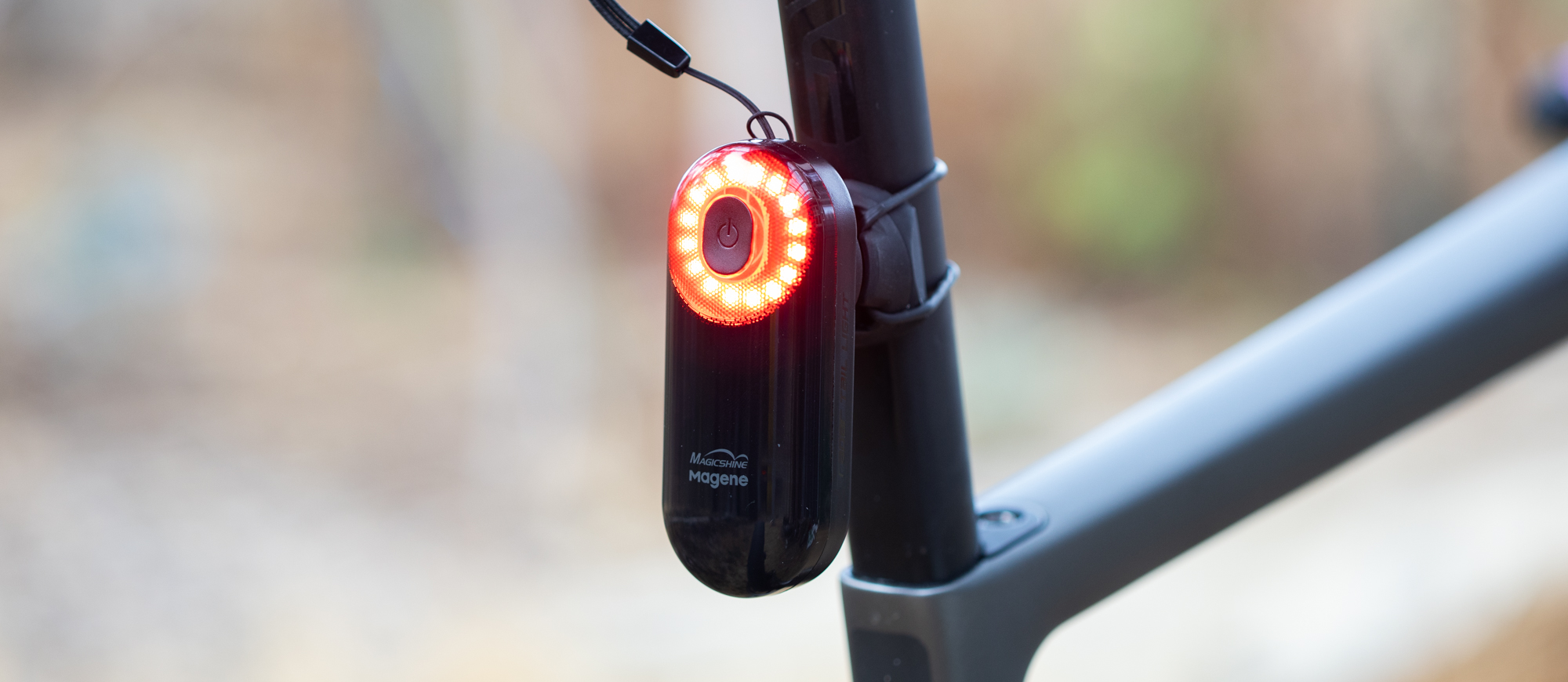Cyclingnews Verdict
For a bargain price the Magicshine Seemee 508 adds USB-C charging and a leash which happen to be the two things Garmin needs to fix about the Varia RTL515 but the light isn't as bright and the battery doesn't last as long.
Pros
- +
Includes a leash for loss prevention
- +
USB-C charging
- +
Bargain pricing for rear-facing radar
- +
Thick, high-quality, rubber strap mounting
- +
A companion app allows for future updates
- +
Works with a Wahoo/Garmin adapter to convert for Garmin mount options
Cons
- -
Inaccurate battery life
- -
Low-powered light
You can trust Cyclingnews
For the last few years, the cycling industry has been making the case that daytime running lights add safety. The movement started with research from Bontrager and options for disruptive flash patterns but as cyclists started to feel the results, the options expanded. On our list of the best bike lights, we've got multiple options if you want to add a rear light for day, or night, use. One way you can take it further though is with a radar tail light. Until now, that has meant a Garmin Varia, and a high price, but this year that changes.
Magicshine isn't new to taking high-end features and putting them into a budget package, but now it's turned its attention to radar. The Magicshine Seemee 508 radar tail light promises to offer the same core functionality as the Garmin Varia RLT515, plus the features Garmin hasn't yet added, for a bargain price. I got to work riding and testing to see if the promises held true and if the Magicshine option was credible. Now that I've put in the time, I'm ready to talk about it. If you like the idea of knowing when a car is approaching from behind, keep reading to see if Magicshine is a better option or if you should stick to Garmin.
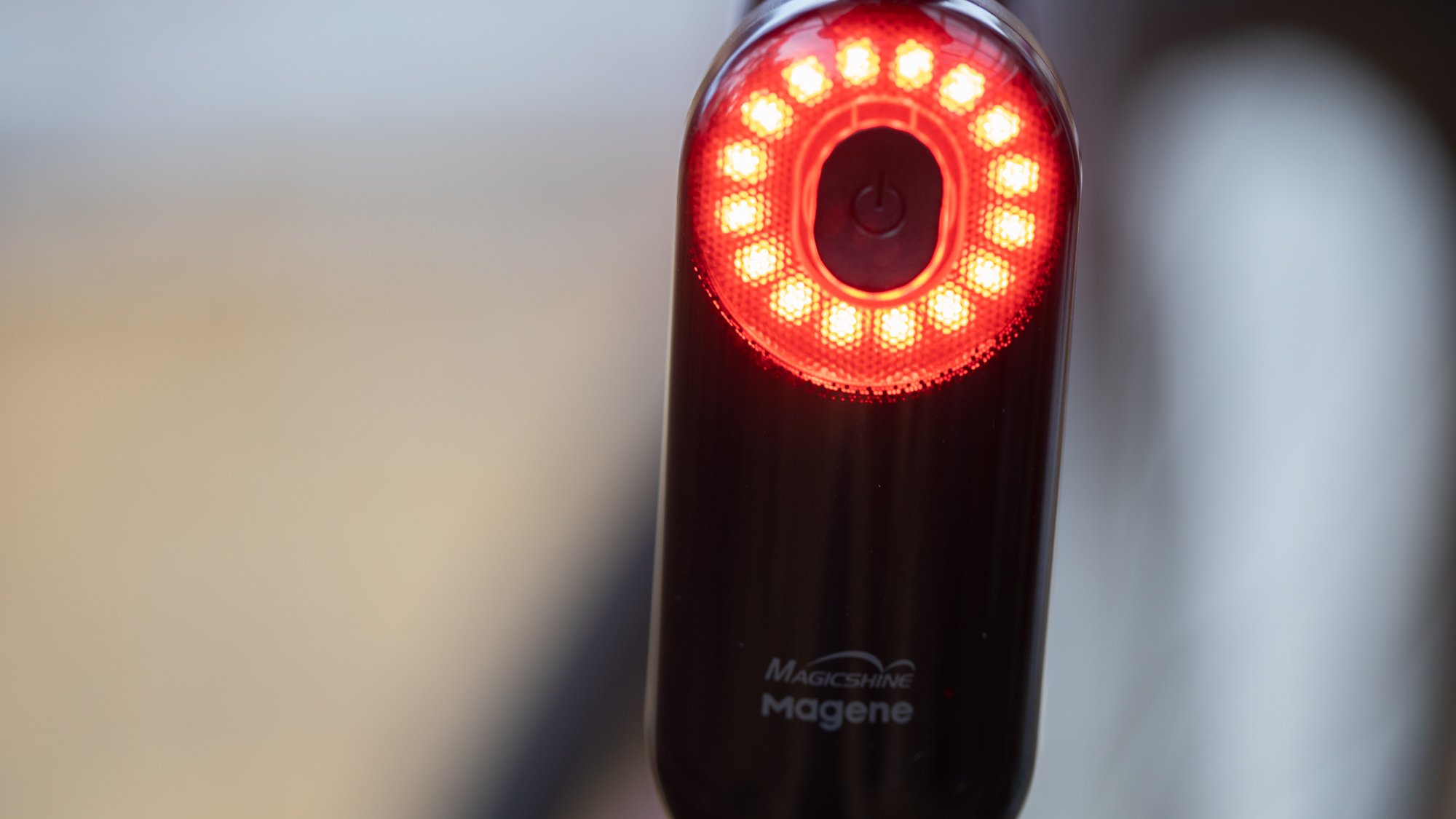
Design and aesthetics
You have to accept that while this is a review of the Magicshine Seemee 508, there's going to be a lot of discussion about the Garmin Varia models. The reality is that Garmin invented, or at least brought to market, the concept of radar on a bike tail light and for seven years has been the only option available. Radar as a sensor category is something that Garmin has opened for others to use but until now, no one has. Then this year, both Magicshine and Bryton had products to announce. Details about the Bryton are still sparse but I've had the Magicshine in my hands for a while now.
On the outside, the Magicshine Seemee 508 is almost exactly the same size as the Garmin Varia RLT515. The specs say that the 94mm x 38mm x 25mm is slightly different but in terms of actually dealing with it, the two are the same. It's a long narrow rectangle with a curved top and bottom and at the bottom is where you will find the charging port. In both units, there's a rubber half circle but if you open the rubber on the Magicshine, you will find a USB-C port instead of a micro-USB.
Keep moving up the rear of the unit and it continues to look almost exactly like Garmin but there are differences. The mount is a quarter turn but it's not Garmin-compatible. If you are looking at the Magicshine unit in isolation you might not notice the difference but it's actually clocked 90 degrees. It will attach to a Garmin mount but when locked in place, it will be horizontal. If you ever find yourself in some situation where you have to make it work, there's no reason it won't. On the other hand, if you want your pick of the vast array of third-party Garmin-compatible mounts, just grab a "Garmin quarter-turn adapter for Elemnt" from Wahoo and you are good to go.
If you find yourself worrying about adding an adapter to a third-party mount, there's another feature you'll find interesting. At the top of the rear of the light is a hole with space for a leash. This has been a feature requested of Garmin for years so there's likely going to be a lot of people happy to see the inclusion here. It certainly adds peace of mind when you start getting creative with mounting options.
Flip the light over and this is where the design really starts to differ from the Garmin light. The most noticeable, and important, change is the actual light. Magicshine uses a ring of 16 LED modules surrounding the power button. Hold down the centrally located power button and there are options for solid, flash, pulse, peloton, rotate, and only-radar mode. You can also connect to the light via the companion app and from there you will find options for adjusting how fast the flash or pulse cycles.
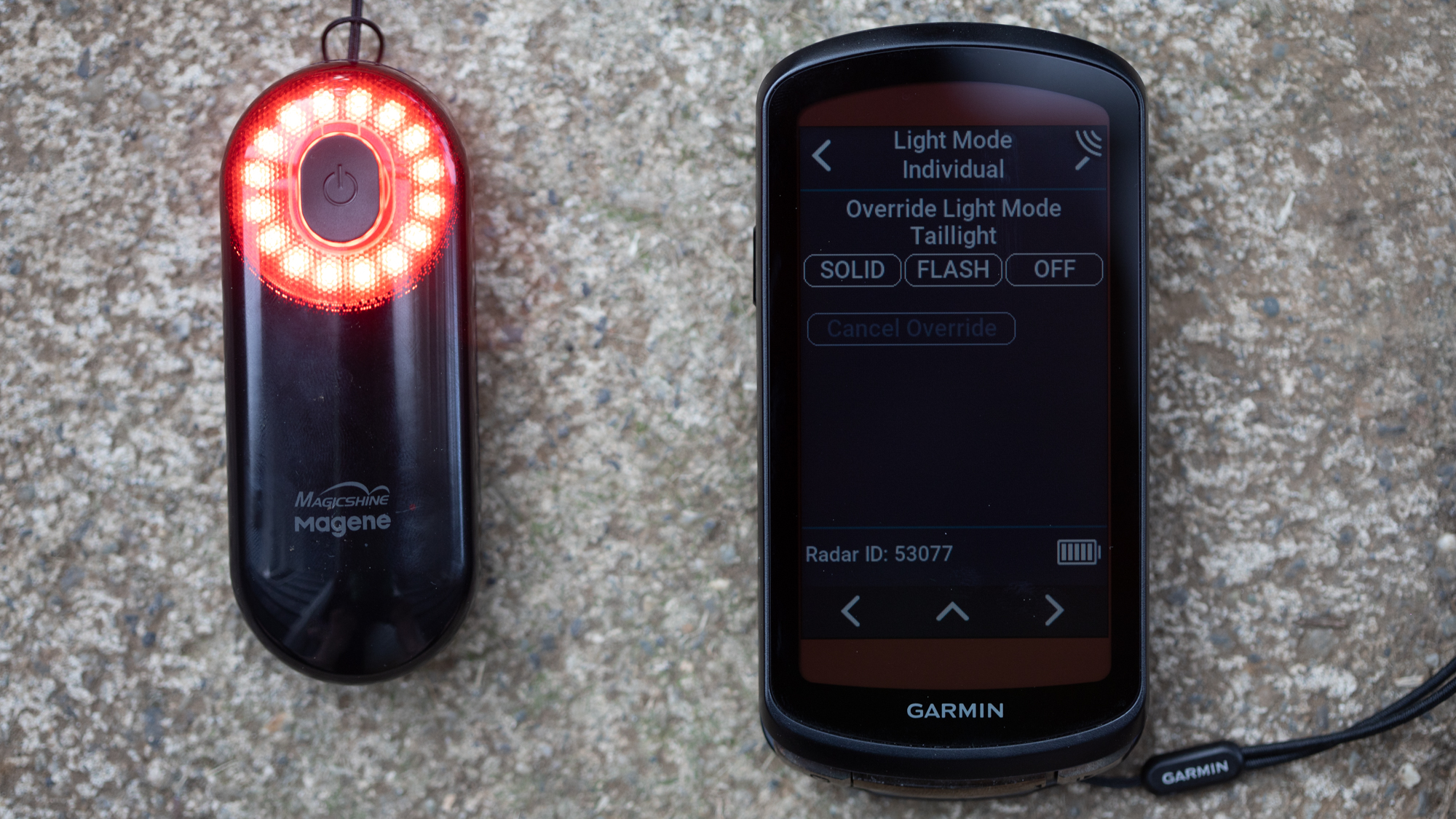
Any GPS head unit that supports radar functionality, basically all of them, will also have options for changing the behaviour of the light while riding. Don't expect to find the ability to change the patterns but you can turn it on or off as needed. If you make a stop during a ride the light will also turn off after five minutes with no movement.
In terms of the specs for radar functionality. Magicshine basically duplicates Garmin Varia. Both units claim to detect vehicles up to 140 metres behind you and with a 40-degree horizontal spread although Magicshine gets specific about being able to detect up to eight vehicles while Garmin does not. Garmin meanwhile specs up to 160km/hr for detection vs 120 km/hr for Magicshine.
The lighting specs differ a bit more. Magicshine has solid, flash, and pulse as options and the battery time claims are six hours, 10, hours, and 12 hours respectively. That's all at a max of 20 lumens and as claimed, that's less than the 65-lumen day flash, and 16 hours of burn time, for the Garmin Varia RLT515.
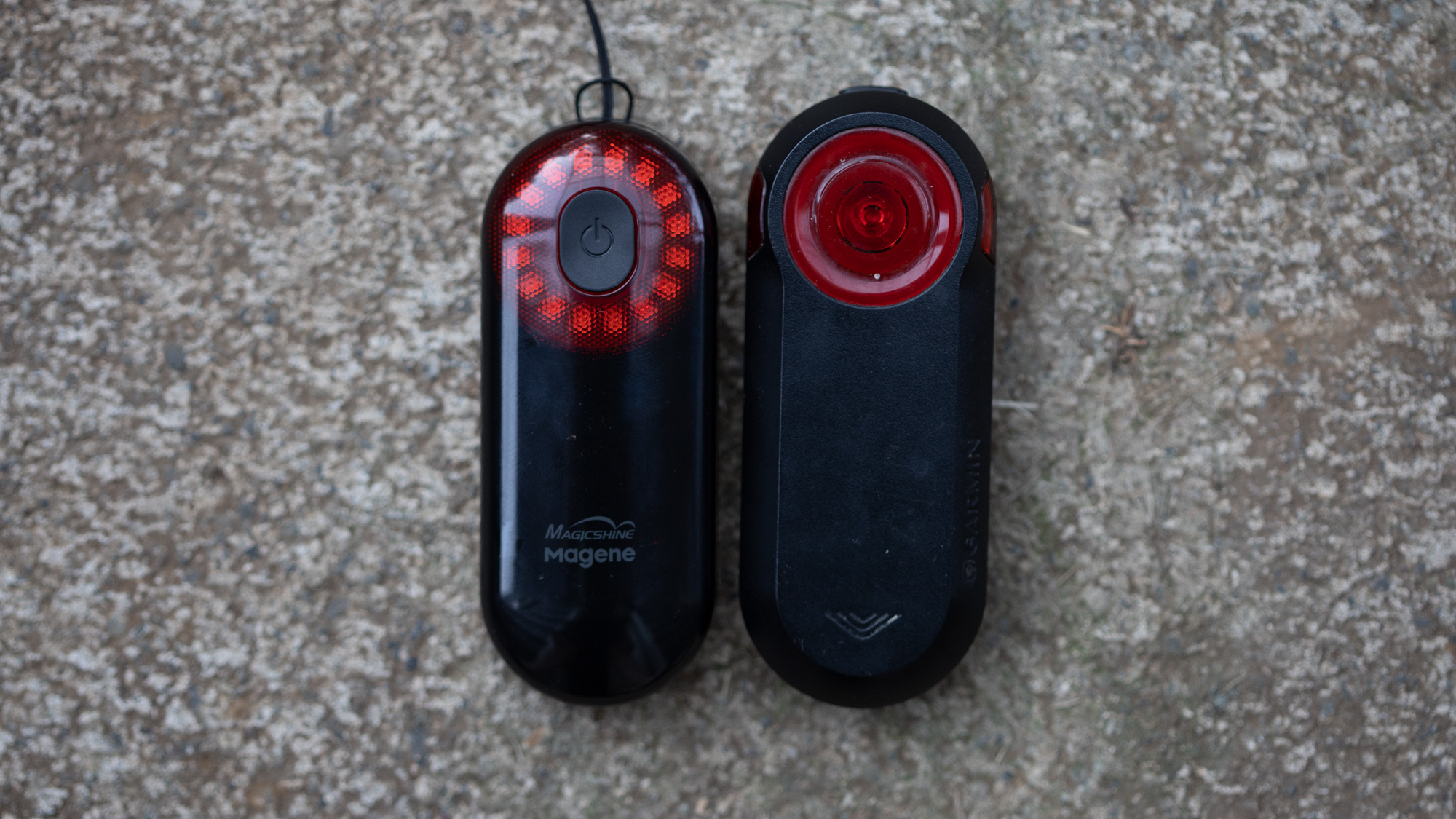
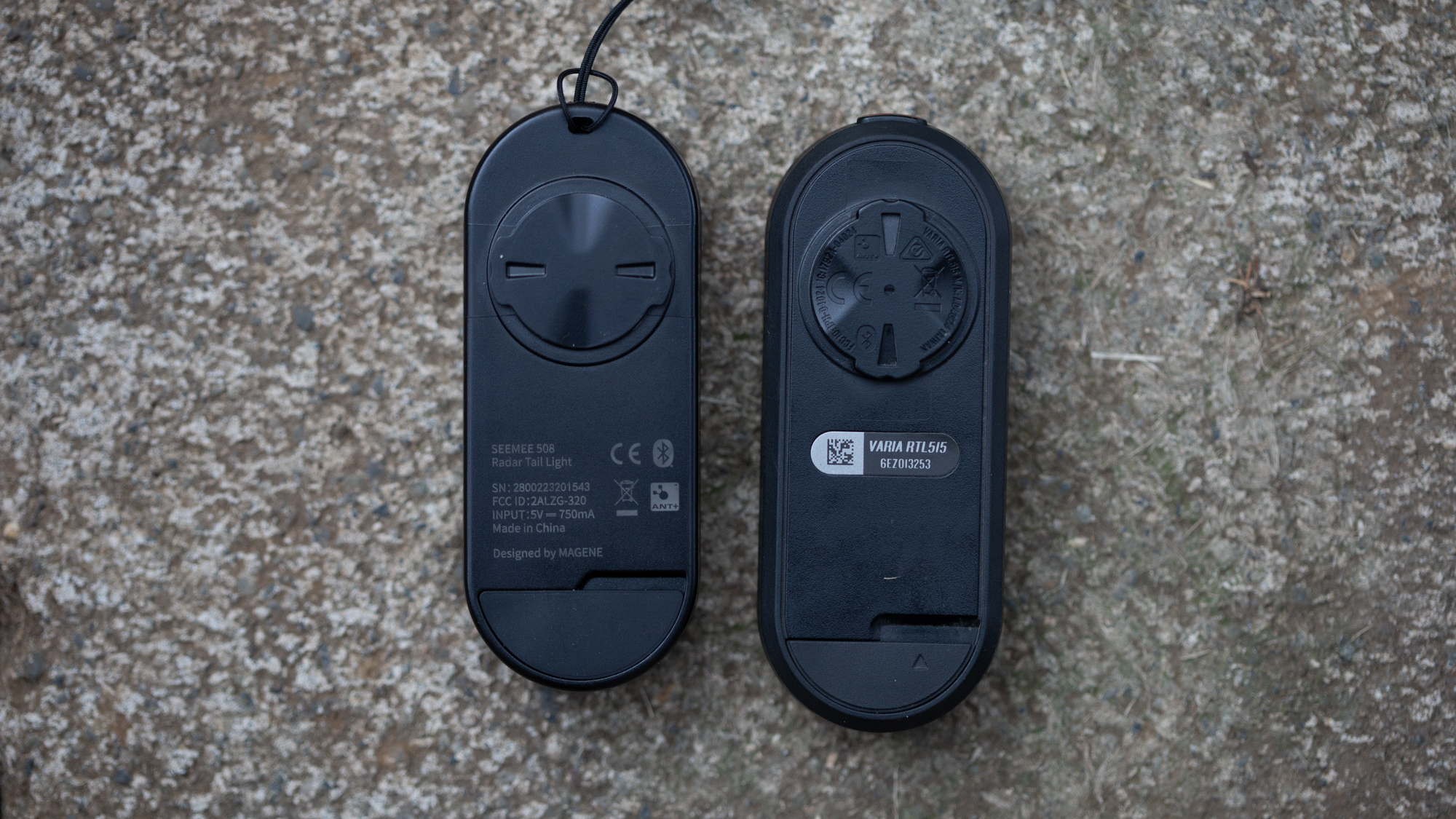
Performance
Before I get too far into a highly specific discussion about the Magicshine Seemee 508 I think it's important to discuss radar in general. In short, it's groundbreaking and it will change your riding but not in every situation. If you are riding and a car enters the space behind you then your head unit will beep. When the car passes and it's clear again, it will beep again. There is also a visual indication and yes, it's possible to turn the beeping off.
Once you get the hang of it, the system will become a virtual mirror. The top of the screen represents you and the bottom is where cars enter the display. As they come closer to you, vehicles will move up the display. Different computers handle the system differently but there tends to be an indication of speed as well.
In the city, it becomes background noise. That's not to say I don't use it in the city but I leave the beeping on and it beeps a lot. Each time there's a break in the traffic you'll get the clear beep before almost immediately getting another vehicle alert. Since it's never fully clear you are still going to end up checking to see exactly where vehicles are before moving over and the constant beeping is a lot.
Out of the city though it's one of the most transformational technologies I can remember in a long time. I spend a lot of time on single-lane country roads where I rarely see cars and can generally ride in the centre of the road. I don't have to listen for cars or pay attention all the time. When I do encounter a vehicle, I can move out of the way without issue.
This whole description comes from years of riding with Garmin Varia radar but the experience of using the Magicshine is exactly the same. The radar system isn't any different and that's why the Seemee 508 is so seductive. In the past, Garmin has been prompt about updating its Varia models but this year they didn't update the RLT515. Instead, they released the RCT715 with an added camera, less battery life, and a much bigger price tag. The 515 stayed in the lineup as a current model but it's not current. The biggest complaints are the lack of USB-C charging and no ability to attach a leash. There are also some complaints about the mounting system but that is solvable with a few minutes on Amazon.
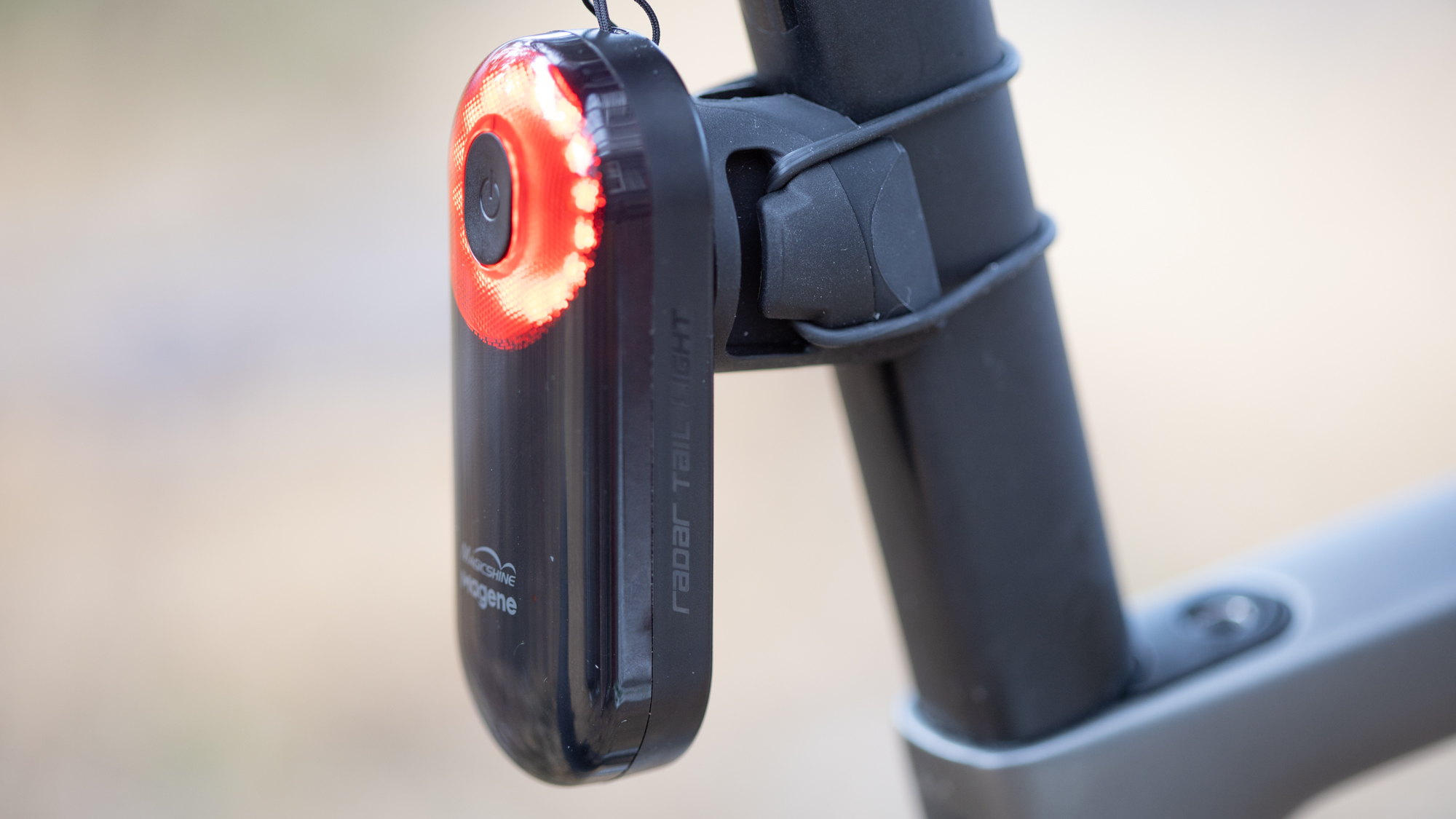
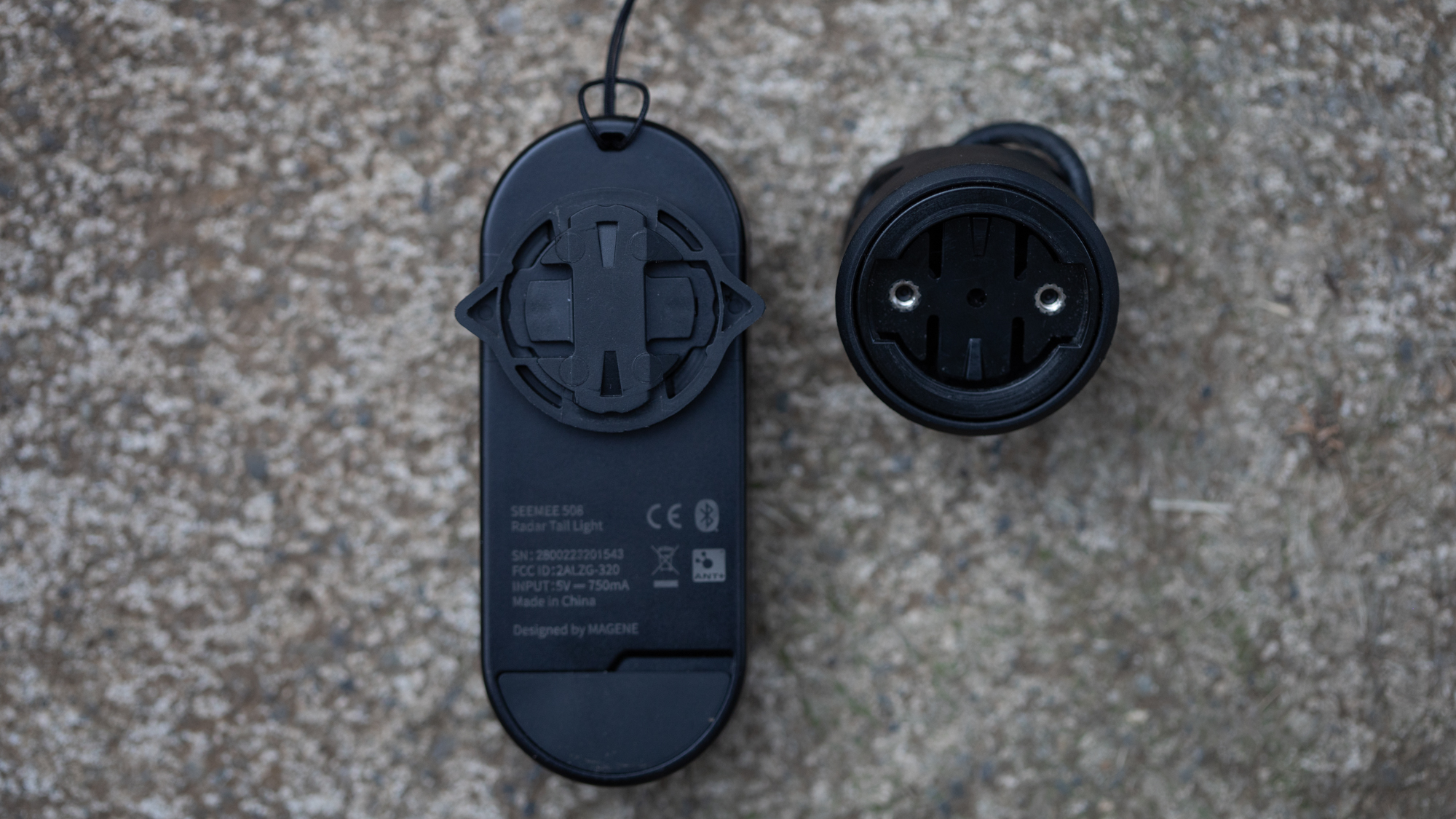
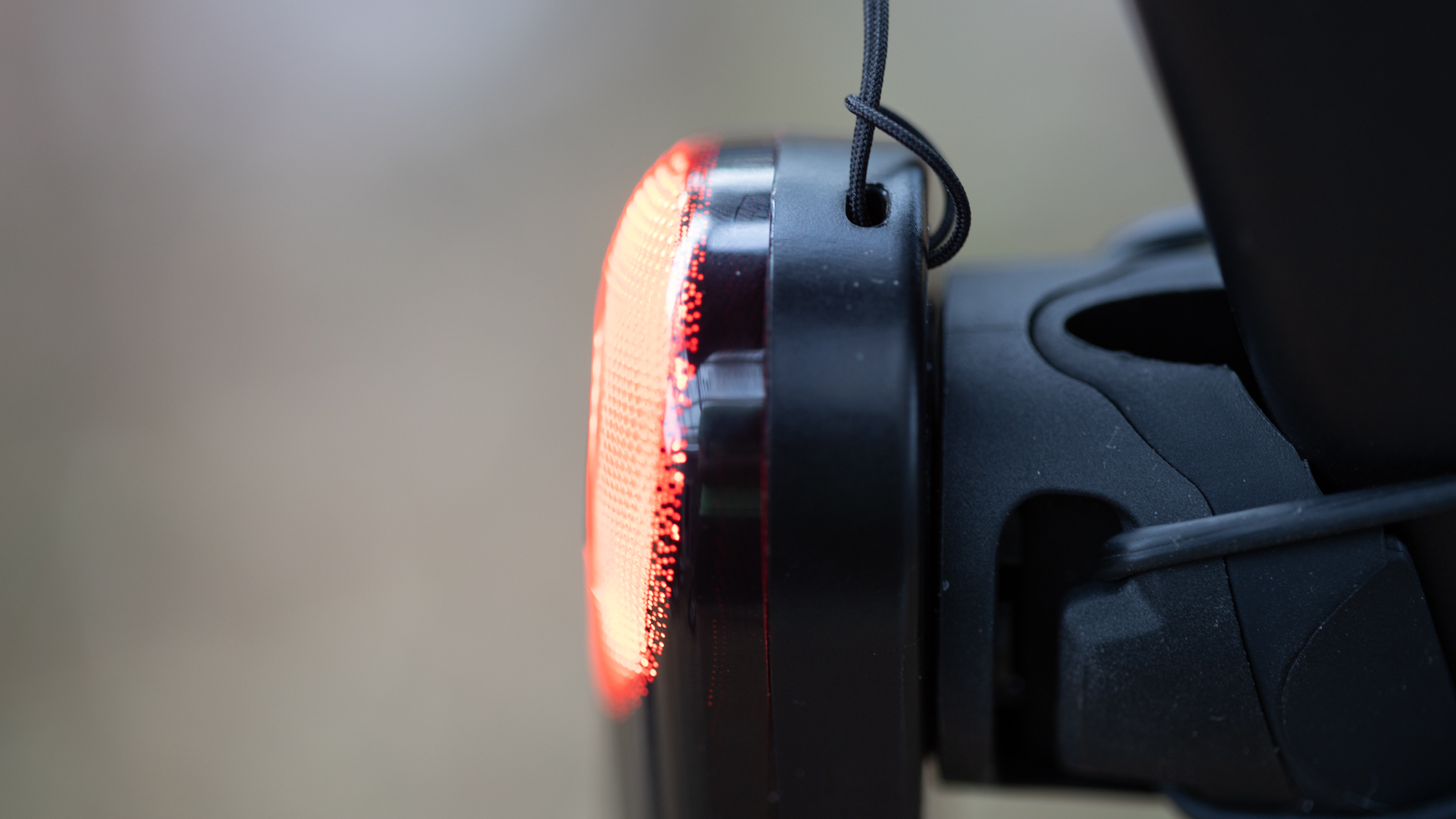
The Magicshine Seemee 508 promises to be a Garmin RLT515 at a lower price point and with the updates that users are looking for. Unfortunately, it's not that. The Garmin Varia RLT515 continues to be a better product but that doesn't mean you shouldn't choose the Seemee 508. There are some situations where it may do the job just fine.
The first thing to be aware of is that the Magicshine burn times are not correct. The charts are quite clear that the Seemee 508 isn't as bright as the Garmin but pulse mode claims a 12-hour burn time. If that were true, that's enough to cover just about every ride but that's not what I experienced in my testing. Instead, I had the light consistently die between seven and eight hours on pulse mode and when I checked with Magicshine, they sent a different burn time chart. Instead of claiming 12 hours, the new one claims 8h19m for pulse mode. I think that's still generous but it's tough to pin down exactly when a taillight dies on a long ride and that's within the realm of possible. Interestingly, the new chart also claims the flash mode lasts a bit longer. Either way, you aren't going to get 12 hours so don't expect it.
The light is also a lot different to the Garmin light. The Garmin RLT515 uses a highly optimised reflector and an irregular flash pattern. Both are reminiscent of Bontrager Flare R rear light which is a light I hold in very high esteem for visibility. Meanwhile, the Magicshine uses a more diffuse reflector that widens the beam but the light isn't as bright and I don't expect it to be as visible over long distances. It would seem to offer better side visibility but Garmin counters that advantage with side-facing reflectors for the main light.
Even if you just stick to the flash mode, the Seemee 508 is different. The flash mode is more of a pulse that never fully turns off and there’s no option for an irregular flash. What might be a saving grace here is the companion app. Right now, there’s not much point to it. Yes, you can adjust how fast the light flashes, or pulses, but I see no advantage to either option. It does mean that real change is possible in the future though. It’s perhaps optimistic but the option is at least available.
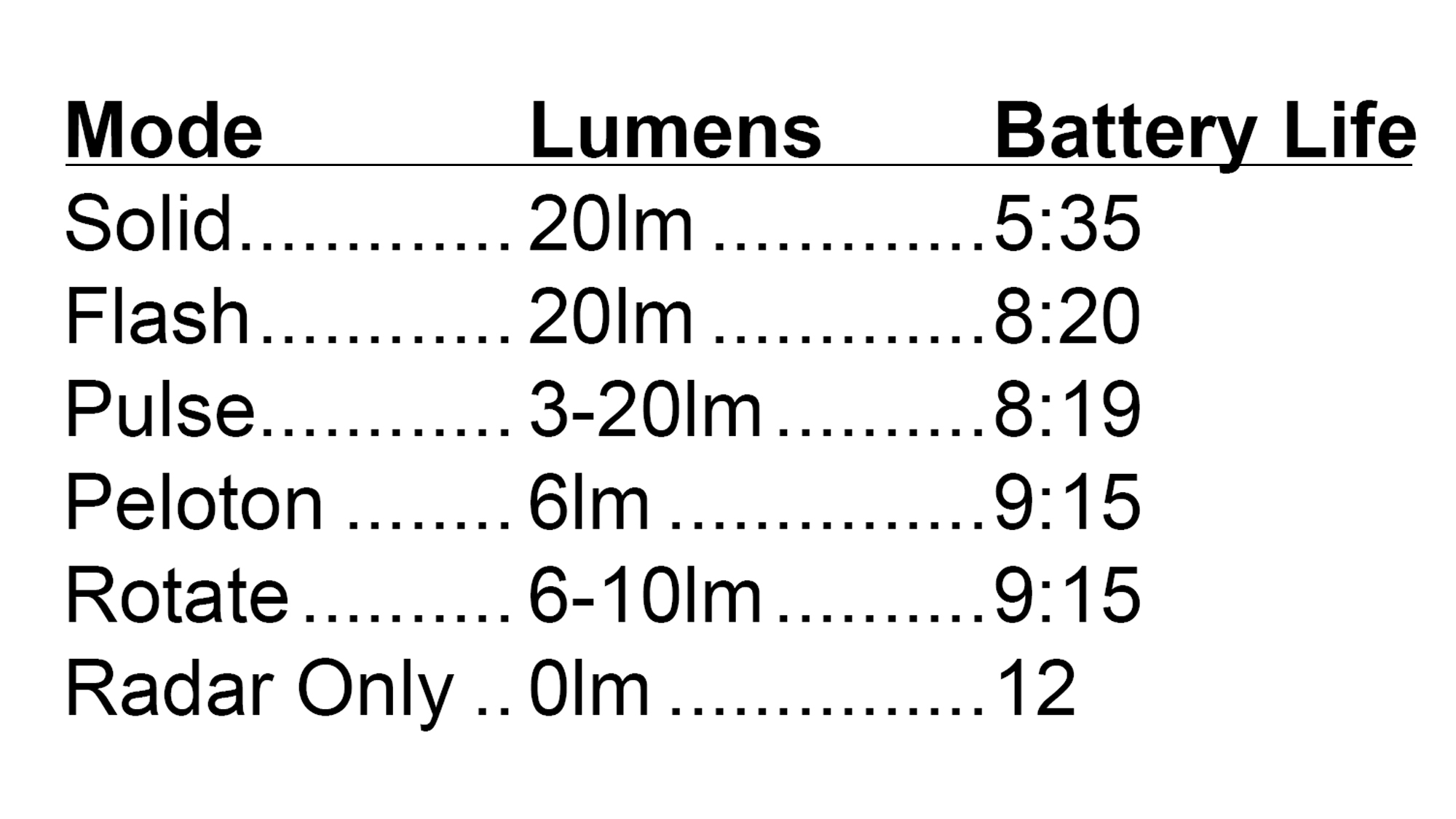
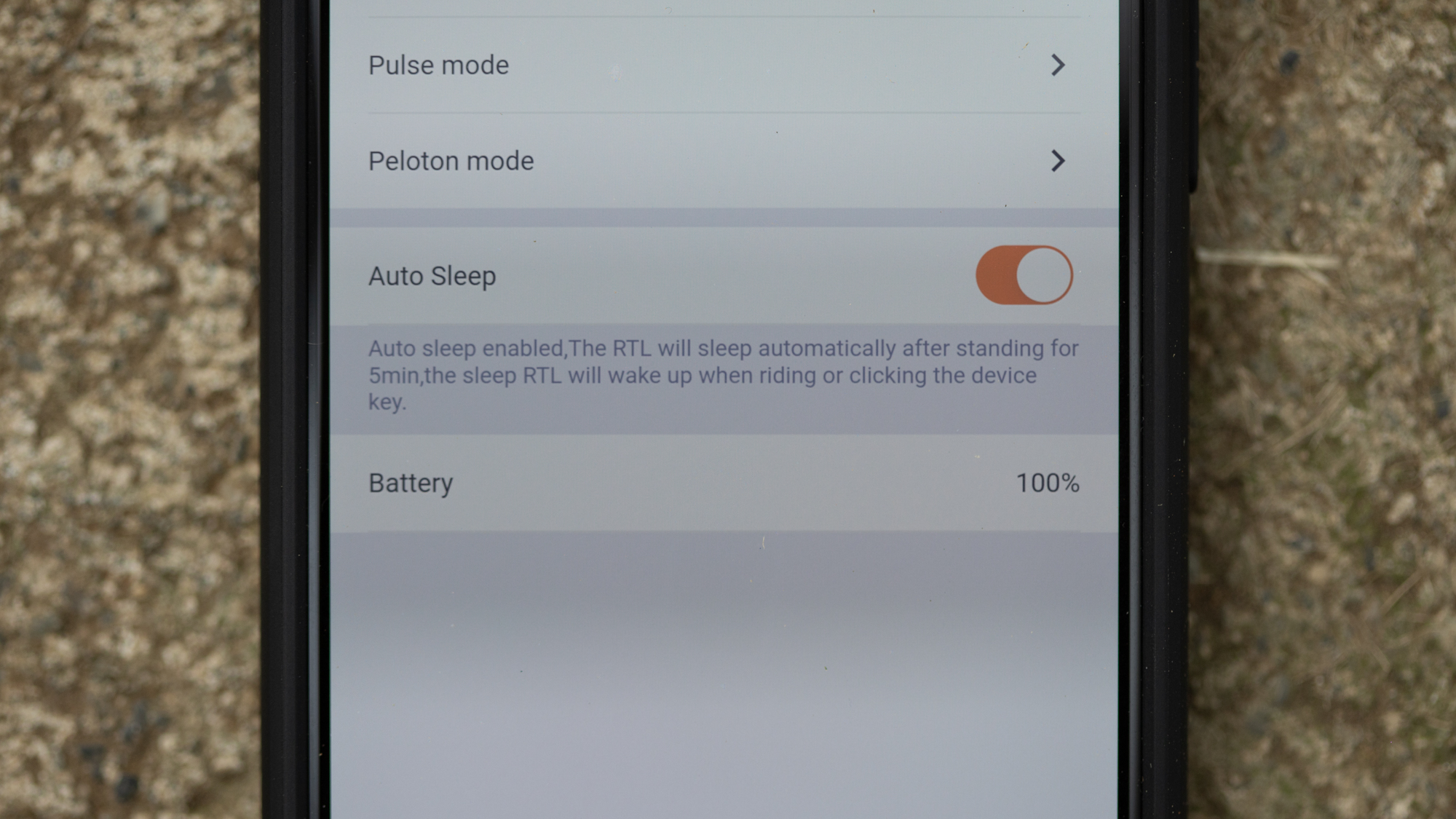
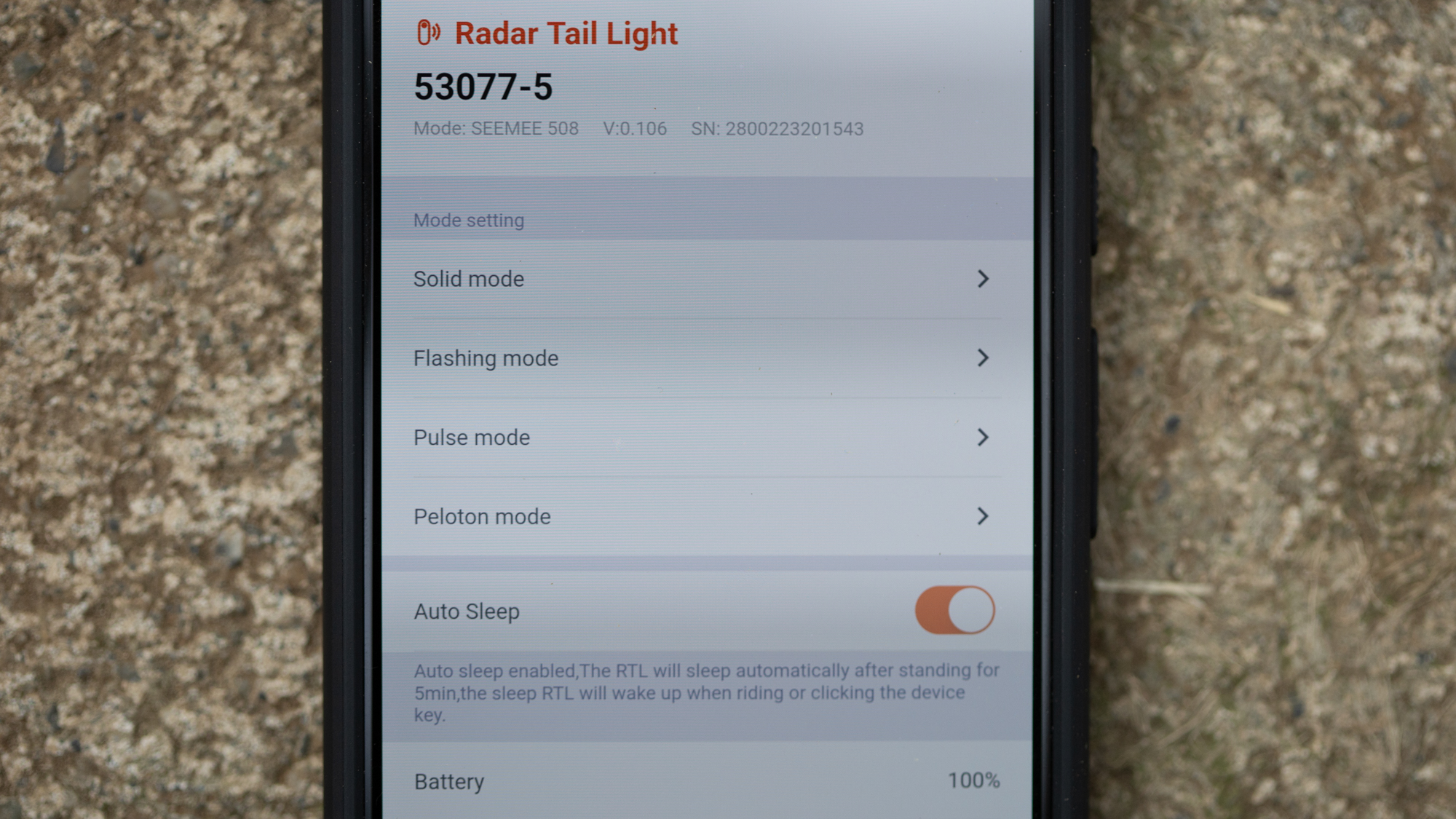
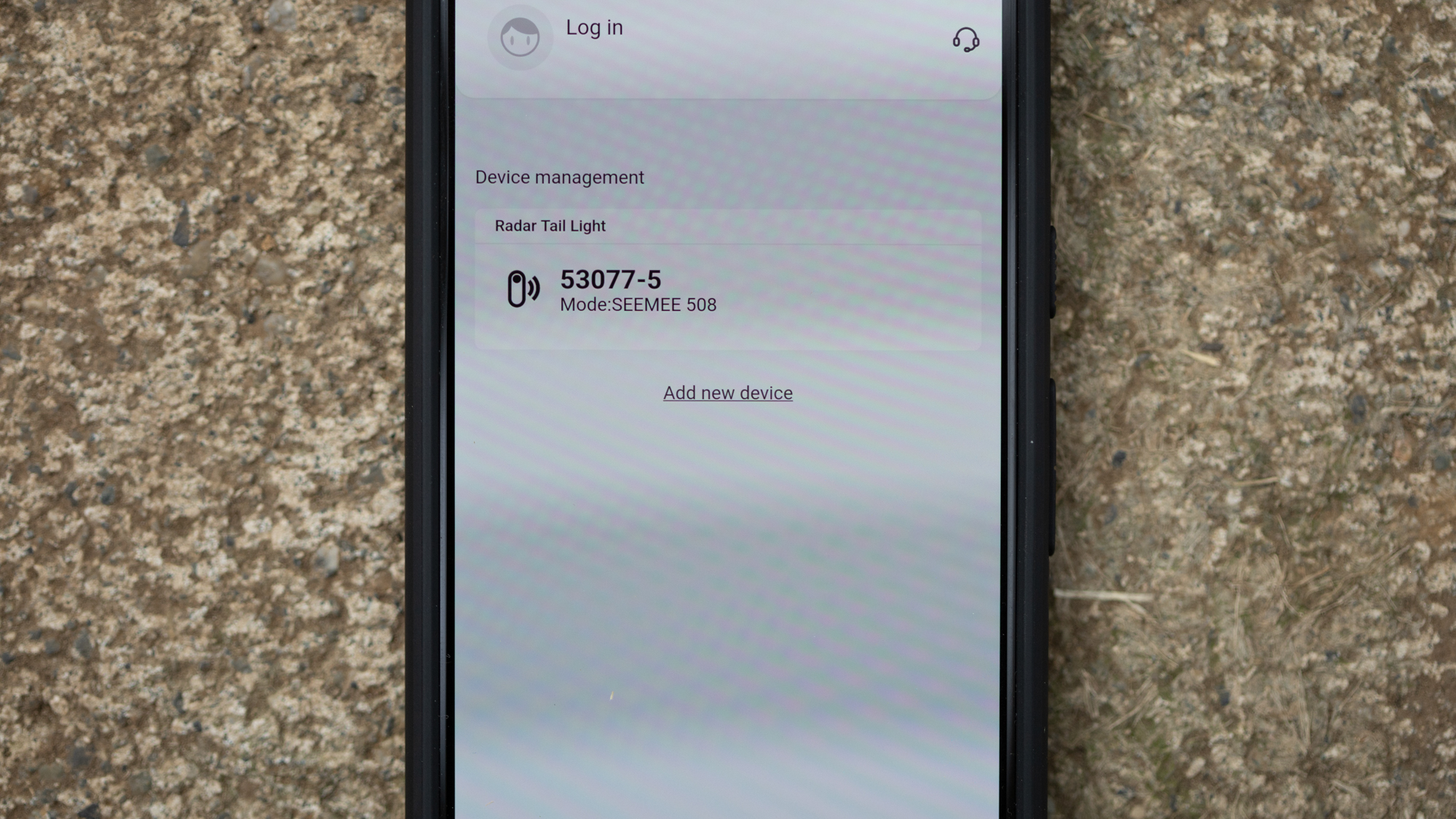
Verdict
Laying out the basic premise of this review is very straight forward. In general, using a rear light with radar is amazing. Particularly if you spend most of your time off of busy roads. Unti now, if you wanted to use a radar tail light your only option had been something from Garmin. This year Garmin opted to add a more expensive radar unit with a camera and did not update the RLT515 which is starting to look a little out of date. That opened up space in the market like never before and Magicshine has tried to step into that space.
The result is the Magicshine Seemee 508 but it's not a slam dunk. The Seemee 508 does fix the biggest issues with the Garmin offerings by dropping the price and offering a leash for security along with USB-C charging. Unfortunately, with less battery life and a less powerful light, Magicshine introduces issues as well. There is a saving grace though. The core functionality of the radar remains the same and the pricing undercuts even the Garmin RVR315 which lacks a light. That means if you want to add rear radar to your bike, consider the Magicshine Seemee 508 as long as seven hours of battery will cover your needs.
| Radar detection | No missed vehicles but despite the specs being the same, it feels like a Garmin detects just a little bit earlier when vehicles are moving at highway speed. | 9/10 |
| Battery life and charging | USB-C charging is great but the battery life is lacking even with the lowered light output. It’s workable for many rides but more battery is better. | 6/10 |
| Light performance | Lacks the highly focused lens design of the best lights and the lumens are lower than the competition but it’s still visible from behind. | 7/10 |
| Durability and construction | Everything feels well-made and quality. The mount uses a nice thick rubber band and the inclusion of a leash makes everything feel safer. | 10/10 |
| Value | The real saving grace of this radar light is that the price is so competitive. It’s easy to overlook little details when the price is right. | 10/10 |
| Overall | Row 5 - Cell 1 | 84% |
Tech Specs: Magicshine Seemee 508 Radar Tail light
- Price: £125.99 / $139.99 / €143.99 / AU$222.99
- Lumens: Max 20
- Battery Size: 1500mAh
- Battery Life: Radar only - 12 hours, Solid - 5:30, Flash - 8:20, Pulse - 8:19, Peloton - 9:15, Rotate - 9:15
- Horizontal Detection Angle: 40°
- Wireless Protocol: Bluetooth/ANT+
- Maximum Detection Targets: 8
- Relative speed of detectable Targets: 10-120km/h
Josh hails from the Pacific Northwest of the United States but would prefer riding through the desert than the rain. He will happily talk for hours about the minutiae of cycling tech but also has an understanding that most people just want things to work. He is a road cyclist at heart and doesn't care much if those roads are paved, dirt, or digital. Although he rarely races, if you ask him to ride from sunrise to sunset the answer will be yes. Height: 5'9" Weight: 140 lb. Rides: Salsa Warbird, Cannondale CAAD9, Enve Melee, Look 795 Blade RS, Priority Continuum Onyx
